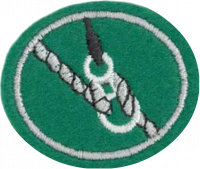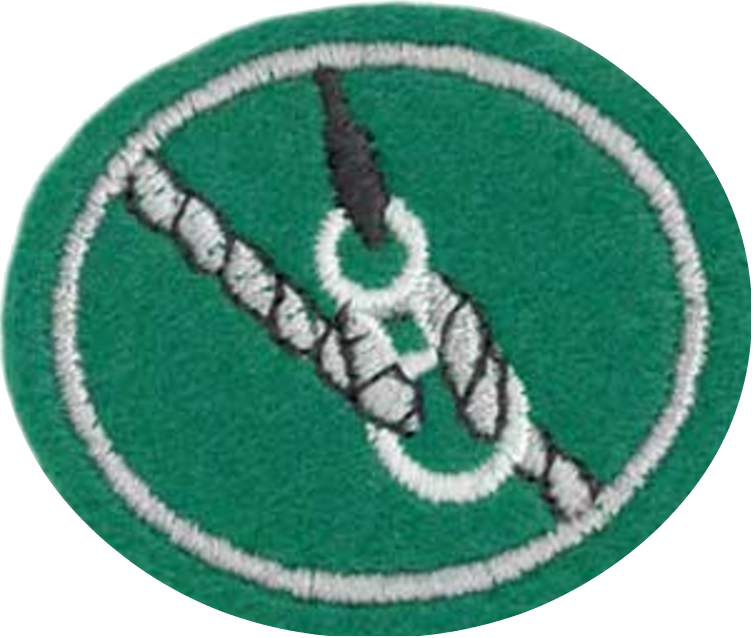Especialidades JA/Rapel/Requisitos
SEÇÃO UM
Segurança
- 1. Faça o seguinte:
- a. Relacione e explique as regras de segurança
- b. Explique a placa de sinalização: "perigo de queda"
- 2. Explicar o uso dos seguintes nós:
- a. Nó de fita
- b. Nó borboleta
- c. Figura de oito
- d. Pescador duplo
- e. Prussik
- f. Lais de Guia
Estabelece
- 3. Desenhe um diagrama para descidas por rapel nos seguinte casos:
- a. Técnica de corda única
- b. Rapel positivo e negativo
- 4. Saiba identificar o caminho para ancoragem segura em várias circunstancias. Exemplo: árvores, pedras, obstáculos.
Amarração das cordas
- 5. Explique os vários apelos verbais.
- 6. Explique os princípios de amarração e três métodos usados, cite as vantagens e desvantagens de cada método:
- a. Amarração no corpo
- b. Amarração mecânica
- c. Amarração em uma base
Cuidados com equipamentos
- 7. Liste as regras para cuidar das cordas.
- 8. Explique a diferença entre cordas dinâmicas e cordas estáticas.
- 9. Conhecer os tipos corretos de equipamentos necessários para rapel.
- 10. Conhecer a melhor maneira para armazenar sua corda. Exemplo: enrolando e encurtando.
Freios
- 11 a.
Know which descending device to use in different abseils.
- 11 b.
Give reasons why you chose that device, e.g. on/off time, security, heat, versatility, etc.
First Aid
- 12.
Know about how to treat a patient for the following injuries:
- a.
Sprains
- b.
Concussion
- c.
Hypothermia
- d.
Broken bone
- e.
Shock
Cliff Rescue
- 13.
Explain how to perform the following rescues:
- a.
The pulley system
- b.
The change-over method
Section Two - PRACTICAL.
- 1.
Pass the abseiling exam with a pass mark of 60%. The exam is available from the conference youth ministries office, or through the instructor.
Verbal Testing
- 2.
Answer the questions on the following topics:
- a.
Uses of the six abseiling knots
- b.
What are, and give the meaning of the standard climbing calls
- c.
Uses of various descenders
- d.
Give seven rules for care of rope
- e.
Give seven rules for safety
- f.
Know about first aid and how to treat patients
- g.
Give five ways to detect faults of ropes
Practical Testing
- 3.
Perform the following tasks:
- a.
Tie the six knots
- b.
Set up the single rope setup and canyoning setup
- c.
Witness a cliff rescue demonstrated by the instructor
- d.
Coil and chain a rope
- e.
Set up the belay methods
Abseiling
- 4.
From a minimum height of 10 meters, complete two abseils on each of the following devices, and know how to attach them to the rope:
- a.
Whale tail
- b.
Robot
- c.
Harpoon (easy access)
- d.
Figure of eight
- e.
Piton-brake bar
- f.
Rappel-rack
- g.
Harpoon (conventional)
- h.
Cross karabiner
- 5.
Explain how to do the classic abseil, and over the shoulder abseil, for emergency use.
- 6.
Be able to Prusik a ten-meter cliff.


